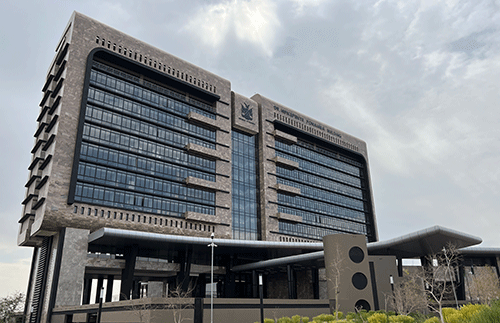The demand for national documents continues to exert pressure on the Ministry of Home Affairs, Immigration, Safety and Security, as long queues persist at its main office in Windhoek.
The ministry inaugurated its N$813 million state-of-the-art headquarters in November 2022 with the aim of improving service delivery to both Namibians and foreigners.
In a recent interview with Nampa, the ministry’s spokesperson Margaret Kalo said the ministry frequently faces a notable surge in demand for its services on Mondays and paydays.
To address congestion, they employ various remedial measures, such as deploying trained graduate students to assist, or reassigning staff members from administrative roles to aid at service counters.
Kalo indicated that the ministry in 2022 introduced an internship programme for graduate students who are trained to assist at the counters. Up to now, 99 students have benefited from this initiative.
“In most cases, these measures successfully mitigate the impact of high client numbers, and significantly reduces waiting times.
However, while we are trying our best to provide timely services to our clients, queues cannot be completely avoided at all times,” she said.
The ministry also frequently encounters an influx of applications, primarily for duplicate IDs, initial IDs, ID collections, late birth certificates, duplicate birth certificates and visas.
Kalo stressed that the issuance of late birth certificates is a cumbersome process, as civil registration requires investigation and verification of the birth or origin of an individual.
“We are encouraging parents and guardians to register their children immediately after birth, as birth certificate services are conveniently available at hospitals across the country.
This approach would significantly reduce the number of individuals lacking proper documentation,” she continued.
Kalo noted that since the introduction of an online platform in March 2023, the ministry has received a total of 900 passport applications and 1 360 short-term visa applications.
She thus urged the public to take advantage of the ministry’s online platform, as it offers a quicker and more convenient procedure compared to in-person applications.
-Nampa



